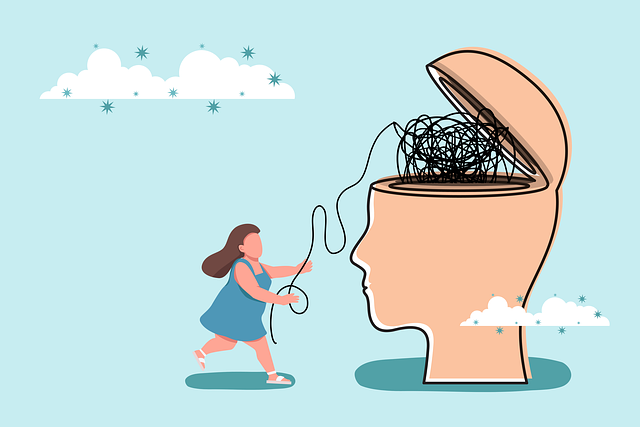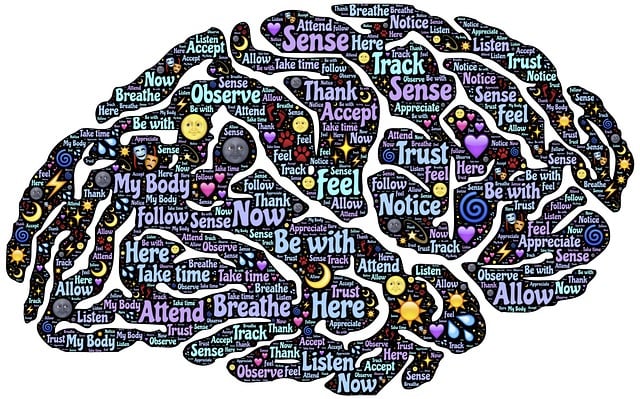Dialectical Behavioral Therapy (DBT) is an evidence-based therapy for substance abuse that focuses on emotional regulation. By combining cognitive-behavioral techniques and mindfulness practices, DBT equips individuals with skills to manage distressing emotions and high-risk situations without relying on substances. Key components include identifying personal triggers, building a robust support network through healthy relationships and support groups, integrating mindfulness exercises for emotional healing, and structured sessions, individual therapy, and group skills training for long-term recovery. This holistic approach enhances mental wellness and reduces the risk of relapse.
Substance abuse carries significant risks, but there are effective strategies to reduce them. This article explores a comprehensive approach to managing addiction through Dialectical Behavioral Therapy (DBT), recognized as a core method in risk reduction. We delve into key components like identifying triggers and developing healthy coping mechanisms, building supportive networks, and mindfulness techniques for stress reduction and impulsivity management. By understanding and implementing these strategies, individuals can navigate their recovery journey with enhanced resilience.
- Understanding Dialectical Behavioral Therapy (DBT) as a Core Approach
- Identifying Triggers and Developing Coping Mechanisms
- Building a Supportive Network and Fostering Healthy Relationships
- Mindfulness Techniques for Stress Reduction and Impulsivity Management
Understanding Dialectical Behavioral Therapy (DBT) as a Core Approach

Dialectical Behavioral Therapy (DBT) has emerged as a core approach in addressing substance abuse issues, focusing on the delicate balance between acceptance and change. This therapy is particularly effective for individuals struggling with emotional dysregulation, one of the primary factors contributing to addiction. DBT combines cognitive-behavioral techniques with mindfulness practices, empowering clients to develop skills that enhance their ability to cope with distressing emotions and high-risk situations without resorting to substance abuse.
By integrating self-care practices, mental wellness coaching programs, and empathy building strategies, DBT fosters a holistic healing process. It teaches individuals to become more mindful of their triggers and emotions, promoting healthier decision-making. The therapy’s structured nature, combined with individual therapy sessions and group skills training, equips clients with the tools necessary for long-term recovery and improved overall mental wellness.
Identifying Triggers and Developing Coping Mechanisms

Identifying personal triggers is a powerful first step in risk reduction for substance abuse. Through therapy and self-reflection, individuals can uncover specific situations, emotions, or environments that lead to cravings or relapses. This awareness allows them to develop tailored coping mechanisms. Dialectical Behavioral Therapy (DBT), for instance, offers valuable tools to help manage intense emotions, improve distress tolerance, and enhance interpersonal effectiveness, all of which are crucial in navigating triggers effectively.
By integrating Emotional Healing Processes, individuals can address underlying trauma that may contribute to substance abuse. Trauma Support Services play a critical role here, providing safe spaces to process difficult experiences and cultivate positive thinking. This shift in mindset is essential for building resilience and making healthier choices. Coping mechanisms such as mindfulness exercises, cognitive reframing, and engaging in meaningful activities can empower individuals to respond to triggers in constructive ways rather than resorting to substance use.
Building a Supportive Network and Fostering Healthy Relationships

Building a strong support network is a pivotal strategy in reducing risks associated with substance abuse. This includes fostering healthy relationships with family, friends, and peers who can offer encouragement, understanding, and accountability. Support groups, either formal or informal, play a crucial role in providing a safe space to share experiences, gain insights from others’ journeys, and learn effective coping mechanisms. Additionally, engaging in therapy, particularly Dialectical Behavioral Therapy (DBT), has proven beneficial for managing emotional volatility and improving overall mental health awareness, thereby reducing the allure of substance abuse as a coping mechanism.
Healthy relationships act as a buffer against triggers and provide an alternative support system to rely on when facing challenges. Mental illness stigma reduction efforts have highlighted the importance of open conversations about addiction, fostering empathy and understanding among individuals and communities. By integrating these strategies into their lives, those at risk or currently struggling with substance abuse can create a more supportive environment, enhancing their ability to make positive choices and manage mood effectively without resorting to harmful substances.
Mindfulness Techniques for Stress Reduction and Impulsivity Management

Mindfulness techniques offer a powerful tool for individuals looking to reduce risks associated with substance abuse. By focusing on the present moment and cultivating non-judgmental awareness, individuals can gain a better understanding of their triggers and impulsive behaviors. Practices like mindfulness meditation, breathing exercises, and body scans help regulate emotions and decrease stress levels, which are key factors in preventing relapse.
Incorporating these techniques into daily routines can be a game-changer for those in recovery or at risk. They promote self-awareness exercises that encourage individuals to recognize their feelings and thoughts without reacting impulsively. This is particularly beneficial in managing stress and preventing burnout, often linked to poor mental health outcomes. As previously mentioned, dialectical behavioral therapy (DBT) is a form of therapy that emphasizes these mindfulness skills, helping individuals develop effective coping strategies for better self-care routine development and overall well-being.
Incorporating dialectical behavioral therapy (DBT) as a core approach, along with identifying and managing triggers, building supportive networks, and practicing mindfulness techniques, offers a comprehensive strategy for substance abuse risk reduction. These evidence-based practices empower individuals to develop healthy coping mechanisms, foster positive relationships, and manage stress and impulsivity effectively. By embracing these strategies, folks can navigate their journeys towards recovery and maintain long-term sobriety in today’s digital era.












